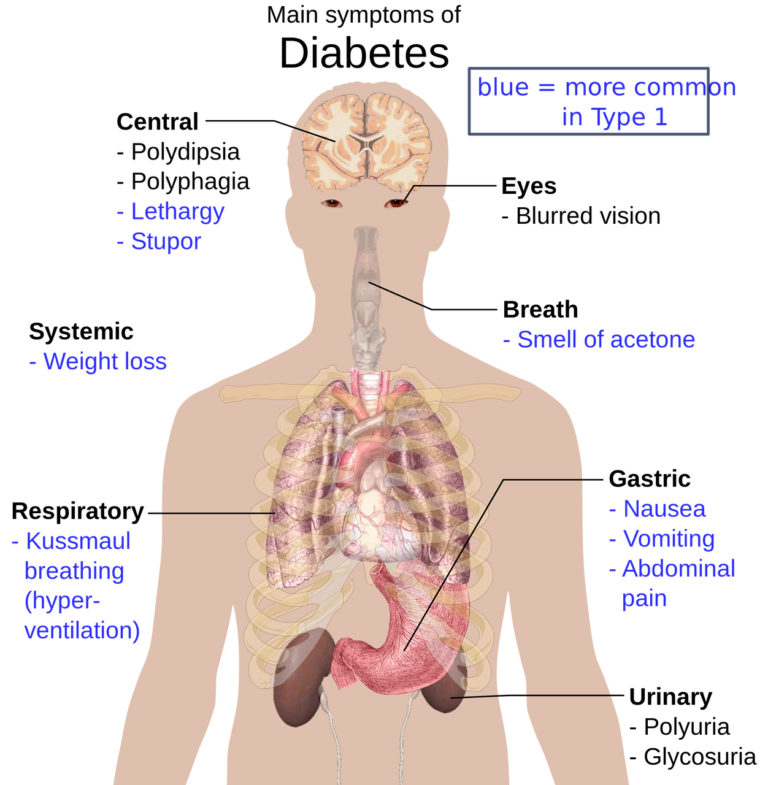
Welcome to Part 1 of our article series, “Connecting the Dots: Blood Sugar, Weight, and the Role of Pilates in Achieving Balance.” In this first installment, we delve into the intriguing realm of blood sugar and its profound influence on weight management. Get ready to uncover the intricate connections between these vital factors and gain valuable insights into maintaining a healthy weight.
Let’s embark on this enlightening journey together and unravel the mysteries that lie at the intersection of blood sugar and weight.
Understanding Blood Sugar and Weight Relationship
What is Blood Sugar?
Blood sugar, also known as blood glucose, refers to the concentration of glucose present in the bloodstream. Glucose is the primary source of energy for our cells and is obtained from the food we consume especially carbohydrates.
Blood Sugar Regulation
Blood sugar regulation involves maintaining stable levels of glucose in the bloodstream. The hormone insulin plays a crucial role in this process. After we eat carbohydrates, they are broken down into glucose, which enters the bloodstream. Insulin is then released to help transport glucose into cells for energy or storage. This delicate balance ensures that our body has enough fuel for optimal functioning while preventing blood sugar levels from getting too high or too low.
High Blood Sugar and Weight Loss
High blood sugar levels can have several impacts on a person trying to lose weight. Here are a few ways in which high blood sugar can affect weight loss efforts:
Impaired fat burning: Elevated blood sugar levels can hinder the body’s ability to burn stored fat for energy. When blood sugar is high, insulin levels also tend to be high, promoting fat storage and inhibiting the breakdown of fat cells. This can make it more difficult to achieve weight loss goals.
Increased hunger and cravings: High blood sugar levels can trigger increased hunger and cravings, particularly for sugary and high-calorie foods. This can lead to overeating and make it challenging to maintain a calorie deficit, which is essential for weight loss. The constant cycle of blood sugar spikes and crashes can disrupt appetite regulation and make it harder to stick to a healthy eating plan.
Reduced energy and physical activity: When blood sugar levels are consistently high, it can result in feelings of fatigue, low energy, and reduced motivation for physical activity. This can decrease overall calorie expenditure, making it more challenging to create the necessary energy deficit for weight loss.
Insulin resistance and metabolic dysfunction: Prolonged high blood sugar levels can contribute to insulin resistance, a condition in which the body becomes less responsive to the effects of insulin. Insulin resistance can disrupt the balance of hormones involved in weight regulation and metabolism, making weight loss more challenging.
High Blood Sugar and Weight Gain
When it comes to gaining weight, high blood sugar levels can still have an impact, although the focus shifts from fat storage to overall health considerations.
Here’s how high blood sugar can affect a person trying to gain weight:
Insulin resistance: Prolonged periods of elevated blood sugar levels can lead to insulin resistance, a condition where cells become less responsive to the effects of insulin. Insulin resistance can make it challenging for the body to effectively utilize nutrients and store them as muscle rather than fat. This can hinder the process of gaining lean muscle mass, often the desired goal for individuals seeking to gain weight.
Impaired nutrient absorption: High blood sugar levels can affect the absorption of essential nutrients, such as proteins, carbohydrates, and fats. When blood sugar is consistently elevated, it can disrupt the normal digestive process and impair nutrient uptake in the intestines. This can potentially limit the body’s ability to absorb and utilize nutrients for muscle growth and overall weight gain.
Increased risk of metabolic disorders: Persistently high blood sugar levels, especially in the context of uncontrolled diabetes, can increase the risk of metabolic disorders such as type 2 diabetes, which can complicate weight gain efforts. These conditions may require specific dietary modifications and medical management to regulate blood sugar levels and support healthy weight gain.

5 Harmful Habits Hindering Blood Sugar Control
For individuals with high blood sugar, there are several harmful habits that can exacerbate the condition and negatively impact their health.
Here are the five most harmful habits to avoid:
Consuming sugary and processed foods: Regularly consuming foods high in added sugars, such as sugary beverages, sweets, pastries, and processed snacks, can cause blood sugar levels to spike and contribute to insulin resistance. It’s important to limit or avoid these foods to maintain stable blood sugar levels.
Sedentary lifestyle: Leading a sedentary lifestyle without regular physical activity can make it more difficult to manage blood sugar levels. Physical activity helps improve insulin sensitivity, promotes weight loss, and enhances overall metabolic health. Engaging in regular exercise is crucial for individuals with high blood sugar.
Neglecting portion control: Overeating and consuming large portion sizes can lead to excessive calorie intake, weight gain, and elevated blood sugar levels. Practicing portion control and being mindful of serving sizes can help regulate calorie intake and manage blood sugar effectively.
Excessive alcohol consumption: Alcohol can significantly affect blood sugar levels and may cause hypoglycemia (low blood sugar) in some individuals. Excessive alcohol consumption can also contribute to weight gain and disrupt metabolic function. It is advisable to moderate alcohol intake or avoid it altogether, especially for those with high blood sugar.
- Smoking: Smoking has been linked to insulin resistance and an increased risk of developing type 2 diabetes. It can also worsen complications associated with high blood sugar. Quitting smoking is essential for overall health and blood sugar management.
Conclusion
In Part 1, we explored the relationship between blood sugar and weight. High blood sugar levels can hinder weight loss efforts by impairing fat burning, increasing hunger, reducing energy, and causing insulin resistance. Additionally, when it comes to gaining weight, high blood sugar can hinder muscle growth and nutrient absorption. Avoiding harmful habits and making positive lifestyle changes are crucial for managing blood sugar levels.
In Part 2, we will delve into the benefits of Mat Pilates and how it can assist in maintaining blood sugar levels. Stay tuned for valuable insights on how to achieve balance through the practice of Mat Pilates in our ongoing article series.
© 2023 Tanushree Jain
